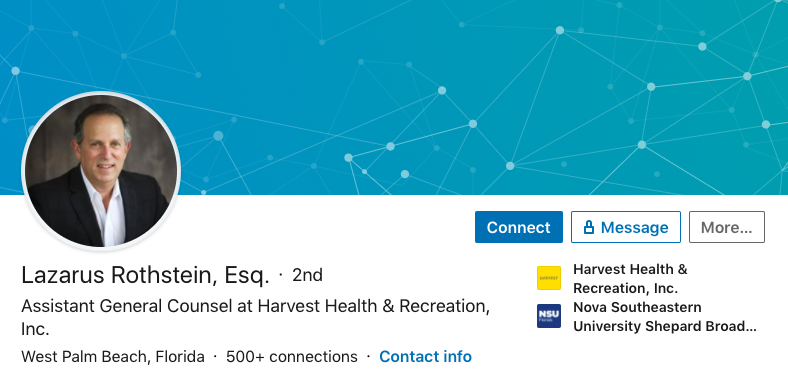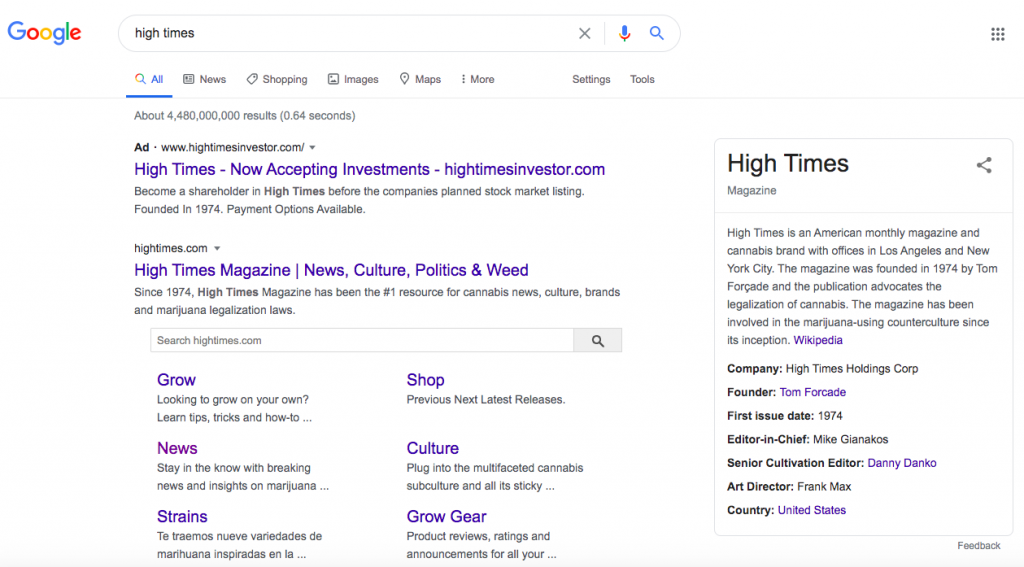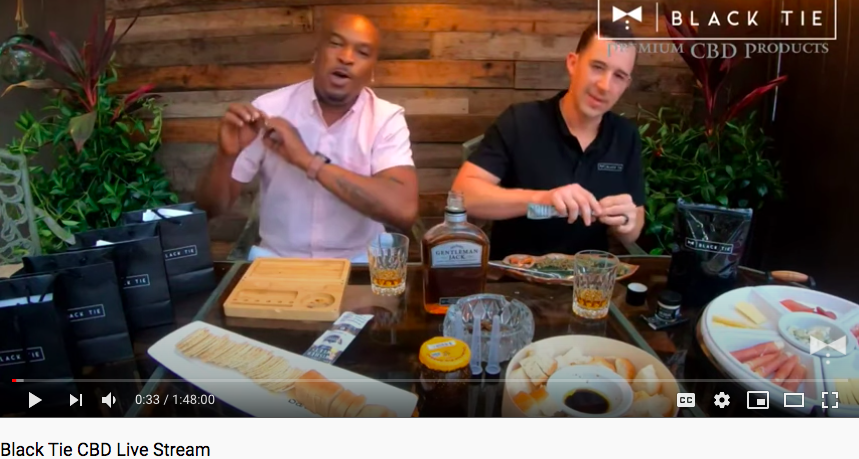When High Times closed on its deal to buy ten California cannabis dispensaries from Harvest Health at the end of June, chairman Adam Levin was made aware he wasn’t buying ownership control of most of them, according to dispensary stakeholders interviewed by Cannabis Law Report.
Authored By: Teri Buhl
14 July 2020
In fact the seller, Harvest Health, didn’t even have control of the equity ownership it bought in California dispensary licenses from Have A Heart founders on June 23 when both companies announced the closing of the transaction, according to an email reviewed by CLR that was written by Harvest assistant general council Laz Rothstein.
High Times have boasted in a number of 2020 press releases that the deal would give them a footprint in California and valued the deal as a $61.5 million transaction with a $1.5 million cash payout to Harvest.
In reality the cash to Harvest appears to have bought no more than an overpriced marketing campaign which attempts to show that High Times has capital to grow its business and encourage unsophisticated cannabis investors to sink more money into Levin’s attempt to make High Times a publicly traded penny stock.
The original merger agreement between Harvest and Have A Heart’s corporate llc, Interurban Capital Group, signed on March 10, 2020 shows the deal was contingent on Washington-based entrepreneur and Have A Heart founder Ryan Kunkel transferring his equity ownership in the licenses.
A copy of the private merger agreement was obtained by Cannabis Law Report. But at the time of the sale to High Times, Kunkel and Harvest were in a knock down legal battle that court documents show involves alleged fraud, breach of contracts, and unclean hands.
On June 26th, three days after the High Times deal closed, Laz Rothstein wrote to the man who worked behind the scenes to negotiate the Have a Heart sale. That man, a mega millionaire from Washington, was Have A Heart’s majority shareholder, Daniel Rainer, according to the merger agreement. An email titled “Ryan Kunkel refuses to cooperate with the merger agreement” was begging Reiner to step up and get Ryan to do what was needed to get the assets transfered.
“I have been informed that Ryan has refused to cooperate with Beau to assist in furthering the issuance of the regulatory licenses for the California Entities and ultimately approval of the transfer of those licenses to ICG. Section 5.06(f) of the Merger Agreement requires the Stockholder Representative to cause the California Entities to do this.”
According to Beau, Ryan refused to do anything unless he is directed by his counsel to take some action.
“Can you reach out to Ryan and his counsel and demand that Ryan take immediate steps to do this? Harvest does not have the contractual right to directly demand that Ryan take action as this is an obligation of Fertile Valley, LLC as the Stockholder Representative.” wrote Rothstein.
Fertile Valley is an llc Dan Reiner used to hold his private stock in Interurban Capital Group, according to documents obtained by CLR. The email was also addressed to Bill Kinzel a man who works with Reiner at his V.C. company Osprey Ventures.
When CLR asked Harvest’s Laz Rothstein if they actually owned the California assets sold to High Times; corporate assistant Christine Hersey wrote back an unsophisticated spin email that said….
“On June 23, 2020, Harvest announced the completion of the divestiture of equity and interests in eight planned and operational retail assets in California to Hightimes Holdings. Following the completion of that divestment, Harvest does not own any equity or interests in California assets that were previously owned by Interurban Capital Group.”
CLR informed Hersey that the publication had obtained a confidential email written by Rothstein that appears to paint a different picture. Harvest subsequently went radio silent and as of press time has still refused to answer any more of CLR’s questions on the matter.
In December, Harvest issued a press release that Dan Reiner would become a special advisor to their board and remains so this day. What Harvest left out of the press release is the fact that Reiner was also the majority shareholder to Interurban Capital Group and owned High Alpine Advisors which held a secured credit line of up to $25 million with ICG that funded the Have A Heart dispensaries expansion into California and Iowa.
Additionally, while Reiner was negotiating the sale of Have A Heart for an all stock transaction of over $2 a share; he was also securing a side deal to invest in Harvest at a lower price of $1.41. The private placement Reiner and his wealthy friends participated in raised $58 million for Harvest. On top of that Reiner choose to convert the $19.096 million ICG had drawn down from the credit facility to Harvest stock through a stock warrant transaction, according to deal documents and individuals involved in the transaction.
“Harvest buying ICG was really just a precursor with the intion of getting Reiner out of his Have A Heart investment so he could put millions into Harvest and get a boatload of publicly trading stock,”
One former ICG executive told CLR who based on a NDA clause and cannot speak publicly.
“This transaction underscores the inherent risks and complexities that still loom in cannabis investing. The perceived “smoke and mirrors” associated with this deal now exposes both Harvest and High Times to further regulatory scrutiny,”
Matthew A. Karnes founder of Green Wave Advisors told CLR.
Harvest’s lack of transparency in the deal is confounded by the fact that while they have mentioned they are in litigation with Kunkel they won’t actually tell anyone what it is about because they say the case was moved to arbitration.
But, CLR have obtained at least five lawsuits filed in Washington State court that show Harvest, through its new subsidy Interurban Capital Group, doesn’t even have working management service agreements with the five dispensaries in Washington. Those service agreements were grossing up to $400k a month per dispensary.
Cannabis laws in Washington require you to be a resident of the state in order to own a dispensary and the dispensary owners named on the license are required to control pricing of the product and hiring of personnel. Kunkel’s name is on all the Washington dispensary licenses, according to the merger agreement. What Harvest was buying in the deal is two fold. A call option to buy the Washington dispensary license if they could get a Washington resident on their staff and the management of the store contract.
Management contracts are popular in the cannabis industry because in some states it means the management company llc isn’t taxed at the same high rate sales that (cannabis) flower is taxed at.
Harvest Retaliation against Dispensary owners
After Harvest closed its deal with Ryan Kunkel and Dan Reiner, it moved immediately to fire senior staff loyal to Kunkel. It also significantly increased the pricing of monthly management contracts. New staff were hired with bigger salaries and Harvest even started to change the price of products sold in the dispensaries.
These moves alarmed Kunkel and his fellow dispensary owners, because, according to court documents this meant the dispensaries were now violating Washington state law and Kunkel could lose his license and damage his goodwill with the state’s governing body that approves dispensary licenses. So, he cancelled the ICG management contract three weeks after the merger was signed claiming among other things that Harvest had breached the ICG deal.
Additionally, public records also show that Kunkel subsequently created a new llc. Since Harvest owned the Have A Heart name all five Washington dispensaries were changed to be called “The Cannabis Storey” and Have A Heart signage was removed.
This caused great consternation with the lawyers at Harvest, who were furious. They locked Kunkel and his team out of their point of sale system and then proceeded to discount all of the products by 50%, according to the content of the lawsuits. They also made it impossible for Kunkel to track sales in the store, sales that he has to report, by law, to the state of Washington thus forcing Kunkel to shut down his dispensaries for a few days. Kunkel eventually retained control over all the stores internal systems and runs them to this day.
Meanwhile Harvest keeps trying to run up Kunkel’s legal bills even after a judge denied their move to appoint a receiver for the dispensaries and Harvest has kept filing lawsuits trying to ‘split claims’. The arbitration hearing is set for the end of 2020 but, for now, Harvest doesn’t appear to be earning any revenue out of the Washington stores it boasted about in the deal announcement.
Partially approved Licenses at Risk
When Kunkel was working on Have A Heart’s expansion into California he teamed up with local residents who were needed to secure what Oakland and San Francisco call ‘social equity licenses”. The idea behind these licenses is to give local individuals ,who were affected by the federal government’s war on marijuana before the State legalized it, a chance to be legal cannabis entrepreneurs.
Two of the African American men Kunkel partnered with to win California licenses are Alexis Bronson and Marshall Crosby.
A review of local records show Bronson owns 40% of the equity in a cannabis license that took two years of legal battles to get approved to operate in San Francisco’s upmarket Union Square. Bronson was also made CEO of the llc Kunkel set up for the future dispensary called HAH 2. The store was rented from NYC based real estate company Thor Equities. A copy of the lease obtained by CLR shows HAH 2 was paying $175k a month rent for the first year and it went up 4 percent after that. On top of that there were hefty construction costs to build out the store and meet relevant city requirements.
Marshall Crosby, one of the only recipients of an Oakland Cannabis Equity dispensary permit, shares his story about growing up in Oakland as he prepares to launch his new dispensary, the Black Card.
In the few months that Harvest was supposed to own the management contract and partial equity in HAH 2 they didn’t pay the rent and neither has High Times since their merger closed.
Given construction was shut down in San Francesco when the Covid19 pandemic began it’s unclear if an act of god will get HAH2 out of a penalty.
Multiple calls to Thor Equities attorney to clarify how much is owned went unreturned. But you can see on the Thor Equities website that they have put the Union Square location back up for rent.
When Cannabis Law Report reached Alexis Bronson by phone he’d already made public comments in press reports denouncing the actions of both Harvest and High Times.
An email Bronson wrote, this week, to a SF city government official, Greg Minor, complaining about High Times said the following….
“Contractually none of the proceeds of this proposed transaction deal that values the four Oakland and San Francisco equity dispensary licenses combined at $24 million USD would benefit the social equity license holders or are earmarked to pay down their companies debt and operational expenses incurred to date.
Basically as equity applicants we are being prostituted and profited on by big Corporate Cannabis like cheap whores at a Hells Angels bachelor party.”
Adam Levin told reporter Jeff Smith at MJ Biz last week that he was working with the social equity owners. But Bronson says he hasn’t heard from him since before the merger closed. The last time they talked was June 4th for only 20 mins when Bronson argued his point that High Times or Levin doesn’t have ownership of his equity interest and he has never voted for approval of this sale. With Bronson’s equity only being 40% it is unclear how much voting power he would actually have in the transaction.
At this point the Union Square (San Francisco) store that Adam Levin bragged about acquiring to the media in the last month appears dead on arrival……….
Have A Heart currently only has two working dispensaries in California. One is in Oakland near Chinatown and has been up and running for ten months. The merger agreement shows it is majority owned (51%) by young cannabis entrepreneur Josh Chase who did not sell his equity in the merger with ICG and Harvest, according to the documents.
The store which High Times valued at $12 million in its SEC filing is continuing to run but it’s unclear if it has an ICG contract managing it or if Chase is running the business on his own.
The $12 million valuation to High Times also appears questionable, given it’s unclear if Ryan Kunkel has even transferred his 49% equity in Josh Chase’s store while in litigation with Harvest. Chase would not return a request for interview with Cannabis Law Report. Ryan Kunkel told Cannabis Law Report he wasn’t going to comment on anything while he is in litigation. Adam Levin has not replied to any emails asking for comment on the issues.
Additionally, another planned Oakland dispensary that had started its buildout in an area called Oakport is also having landlord problems. According to an email seen by CLR this week the $91k a month rent on the store that Marshall Crosby was awarded a social equity license on, has gone unpaid. Back in May the landlord posted a three day notice to quit the location for breach of contract if $386,847.84 owed isn’t paid.
A person familiar with the transaction said Crosby’s location is going to lose its lease or may already have. The dispensary license, like so many of the licenses High Times bought in the deal, don’t have final approval from the cities that granted them.
Why? … because you have to have a building, fire, police and planning approval to secure a final license and dispensary operators in California that spoke with CLR have pointed out that a lot of these pending final approval license(s) are dependant on a showing of rent being paid and buildout construction continuing.
How much due diligence Adam Levin and High Times did before they closed with Harvest is unclear. An email to High Times attorney Stephen Weiss asking for the company to explain their dispensary due diligence went unanswered. Last week Cannabis Law Report broke the news that other cannabis publications, followed , reporting that the SEC won’t allow High Times to collect sales of investment in their Mini-IPO because the company has delayed filing their required audited annual report.
Since then Adam Levin has been on attack trying to convince some reporters that the IPO is just ‘paused’. Levin has also used a California attorney to write threatening letters to journalists if they didn’t report the IPO news as Levin saw fit. This reporter got one of the harassing letters before publication and found the High Times complaint about publication to be meritless.
Show me the Money
Even though High Times can’t close sales in its RegA offering right now, that hasn’t stopped the company sending out daily emails and soliciting investors to invest more. The marketing material continues to spruik the acquisition of ten California, planned and working dispensaries.
Additionally, CLR has seen an email where High Times is denying refunds from main street investors who want to get out of the RegA mini-IPO. The email said the offering will close on September 30 and the stock will be listed by the end of the year. But High Times investors have heard this promise before multiple times since they company began selling the mini-IPO two years ago.

Adam Levin + “Story Cover Image” Levin (far right) on vacation with friends (location unknown / date unknown)
Adam Levin has also made press statements that the company has raised less than half of its target of $50 million with only $20 million completed sales.
Interview with MJ Biz May 13 2020
But the last time High Times spoke to the amount raised in an SEC filing it said only $15 million was raised.
The stock investors buy in the RegA offering is common stock which is below the equity structure of the prefered stock companies, like Harvest get, when they make asset sales with High Times.
Events
The question has been, where is High Times getting the money for all these acquisitions and salaries for the revolving door of Chief Executive Officers. In the past, events, earned the company almost 70% of its revenue. It doesn’t seem as if the company has hosted an in-person event since the Detroit Cannabis Cup in 2019. All in-person events in 2020 stopped in mid-March as COVID-19 forced an end to public gatherings.
The Michigan cannabis cup in 2019 was considered a success as it sold thousands of tickets but was also subject to numerous complaints about parking problems and a general inability to address the crowds that arrived. Presumably, the event must have brought in some revenue.
The Austin TX Hemp Cup was canceled due to the COVID-19 virus and held virtually. One of the sponsors of the event, Black Tie CBD is suing High Times for not receiving a refund.
The company gave High Times $25,000 as a sponsor of an in-person event and even though High Times said it would return the sponsor money, it hasn’t as yet, which in turn has forced Black Tie to sue.
High Times plans say that the company is moving forward with virtual cannabis cup events, but they are unlikely to bring in the millions the company used to make on live events.
Ad Sales
High Times revenue staple has come from the advertising sales at the print magazine. The iconic magazine has had a long 40-year run, but consumers are now reading fewer print magazines in general.
High Times had acquired two other print publications Culture and Dope, but quit publishing these not long after buying them. Dope Magazine according to the June 2019 filing actually provided quite a bit of revenue from its display advertising.
The last High Times printed magazine distribued to retail was the April 2020 edition, but the digital news remains up-to-date.
Long time writer Danny Danko was laid off earlier this year as the digital publishing arm seems to have moved towards a more economical use of freelance writers. There are a smattering of digital ads, but these tend not to be nearly as lucrative as print advertising.
So, it appears, the only other current source of income is the money coming in from investors buying shares in the common stock.
Selling Stock
High Times had said in a filing that it would be late filing its annual report due to COVID-19 and then they missed that deadline of June 12. Many cannabis companies have also filed similar delay requests. Accountants working from home have a hard time accessing needed records, etc, is the accepted 2020 narrative.
However, it begs the question, if the lawyers can make it into the office to transact multiple acquisitions, then why can’t the accountants get their work done as well? If High Times continued to sell shares even after the SEC told the company to stop, it could be in violation of securities laws.
Also, the common shares that were initially sold as having a value of $11 per share, but once the offering is complete an 11:1 forward split will take place and the stock will be worth only $1 per share.
High Times is saying in its SEC filings that there is no litigation that could have a material impact on the company and yet there are numerous lawsuits piling up against the company. None of these lawsuits are disclosed in the filings.
The company is issuing shares like monopoly money with little indication that they will ever trade.
High Times is unable or unwilling to pay companies or individuals it owes, while somehow handing over thousands of dollars to secure dispensary deals and pay executive salaries.
Support Documents
152 GEARY ST LEASE DOCUMENT
2018.10.12 - Have a Heart Union Square lease
LAWSUIT: INTERURBAN CAPITAL GROUP INC V BOYDEN INVESTMENT GROUP LLC & OTHERS
Kunkel counter claim April 2020

































